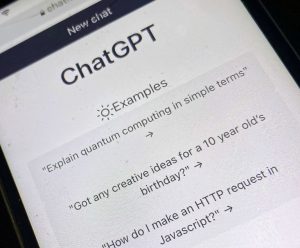Since OpenAI launched its much-anticipated ChatGPT search tool last year, it has spread like wildfire—including in the legal field. The results have been mixed. While some have praised AI for potential efficiency gains in the delivery of legal services, others have raised concerns about the likelihood that relying on AI could result in incorrect or biased content, leading to legal errors.
This issue was brought into the spotlight recently when a U.S. lawyer made headlines for using ChatGPT to find supporting cases for a lawsuit he was pursuing against a Colombian airline. ChatGPT suggested cases and citations that actually did not exist, which the lawyer then used in legal filings, exposing him to the risk of sanctions.
 ChatGPT. (Photo: Michael Marciano/ALM)
ChatGPT. (Photo: Michael Marciano/ALM)


 Shari Klevens, left, and Alanna Clair, Dentons
(Courtesy photos)
Shari Klevens, left, and Alanna Clair, Dentons
(Courtesy photos)




